January 31, 2020
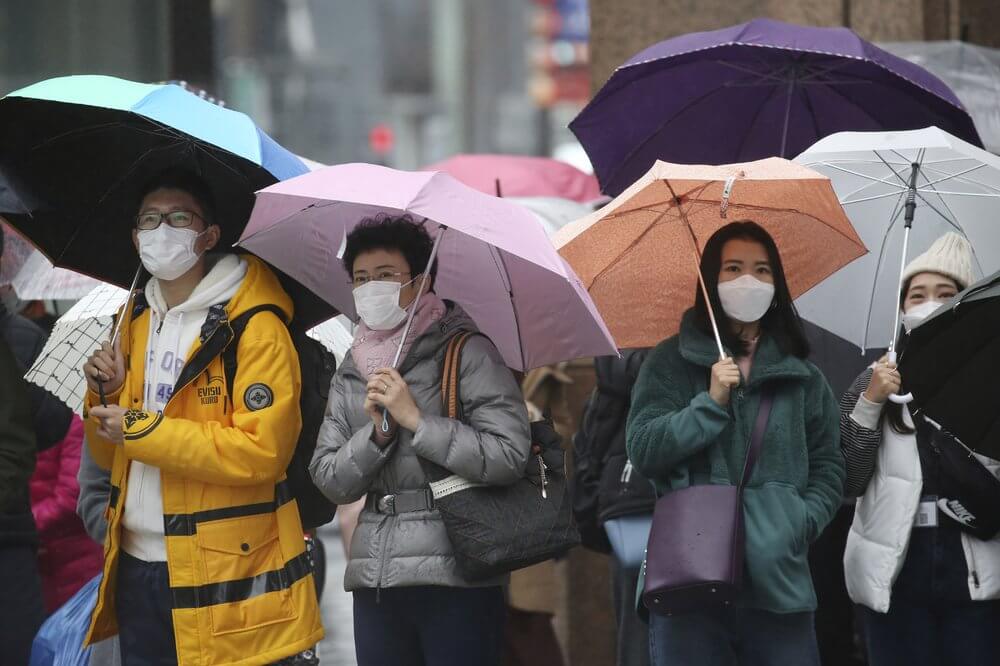
China has been at the center of global concern surrounding a viral new disease. A spike in pneumonia cases in the Wuhan province has been traced back to a new strand of coronavirus. There are 9,923 confirmed cases in 24 countries. China’s death toll currently stands at 213.
The World Health Organization declared a global emergency on Thursday due to its rapid spread to other nations. The head of the WHO said that he is worried countries with weaker healthcare systems are most at risk. The virus is taking a major toll on tourism in Southeast Asia, causing economies to plummet at an alarming rate.
The Chinese government has faced backlash over how long it look to realize and communicate the gravity of the situation. People became aware of a new mysterious sickness at the beginning of January but still traveled for the new year holiday without realizing how contagious it was. China only admitted that it could be transmitted from person to person weeks after it first was discovered. Some critics also say that the death toll is actually much higher than the Chinese government is reporting.
There has also been a spike in racism towards people of Asian descent; a French news agency, Le Courrier Picard, published an article titled “Alerte Jeune,” which translates to “Yellow Alert.” French Asians have expressed their complaints online, using the hashtag #JeNeSuisPasUnVirus, which means “I am not a virus.” Le Courrier Picard has since released a public apology, stating that “it had not meant to use ‘some of the worst Asian stereotypes.’”

Nicaraguan reporter Wilih Narvaez was physically assaulted by police while he was attempting to cover an impromptu riot against Daniel Ortega. Narvaez filed a complaint to a police chief, but he was ultimately ignored. The Nicaraguan Center for Human Rights “condemned the attack and demanded that the Ortega government respect free speech, as well as the physical and psychological integrity of journalists.” Ortega and the police have yet to release a statement.
The Nicaraguan government “wants to perpetuate itself in power through repression,” and it has certainly done so in regards to its treatment of journalists. Nicaraguan journalists have experienced murder threats, censorship, and assault. Due to increased violence against journalists and reporters, “at least 90 journalists have had to leave Nicaragua.” There have also been at least 1,080 violations of individual freedoms.
A Nicaraguan nature reserve was the site of a massacre that left six indigenous people dead and many more injured. Deep in the Amazon rainforest, the Bosawás Biosphere Reserve has been a subject of contention between environmental activists and settlers looking for a profit. 80 armed attackers stormed the community of indigenous Mayagna people, killing indeterminately. Reports are being released stating that ten or more Mayagna have been taken hostage. This represents just one battle in a growing conflict over economic extractions, as more people are pushing into the jungle for fertile land, timber, and gold. The government has yet to release a statement.
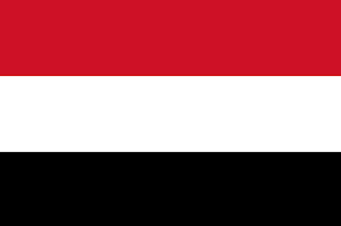
The United Nations’ special envoy for Yemen, Martin Griffiths, has asked for the immediate de-escalation of violent conflict. The continuous fighting between Houthi rebels and a Saudi-UAE-led military coalition is the most intense conflict area has seen in three years. Hundreds of people have been killed or injured this week alone. Griffiths has stated that talks of peace will not take place until the violence stops.
The Houthis keep gaining ground and show no sign of slowing down any time soon. President Abed Rabbo Mansour Hadi has expressed the need to “upgrade military institutions to the highest level of training, armament and vigilance” in order to keep the Houthi rebels at bay.

International human rights activists are celebrating Bangladesh’s announcement that all Rohingya refugees living in camps will be given access to a basic education. Currently, only one-third of refugees have been able to receive any kind of education. The new pilot program, a collaboration between UNICEF and the Bangladeshi government, will be available for boys and girls aged 14 and younger; they will be taught both the Myanmar school curriculum as well as technical skills.
Bangladesh has been the primary recipient of Rohingyas fleeing persecution in Myanmar. An estimated 750,000 refugees now call camps around Myanmar home, forming the world’s largest refugee camp. Education for Rohingya refugees has become a major priority for activists who are worried that neglecting these young people will result in a “lost generation.”

In an ongoing back-and-forth between civil servants and the government, Zimbabwe’s public-sector workers agreed to a 140% wage increase in return for canceling their upcoming strike. Still, the lowest-paid workers only take home around 130 Euros a month, leaving much to be desired in the cash-strapped country. This comes in the wake of Zimbabwe’s doctors returning to work last week after they received salary increases. Amid political turmoil, the Zimbabwean economy is characterized by high unemployment, runaway inflation, and shortages of basic commodities.
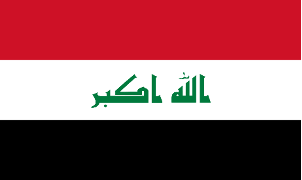
In response to the ongoing protests against American troops being stationed in Iraq, Shia leader Muqtada al-Sadr announced that he would no longer be supporting the protesters. Still, anti-government protests have continued their sit-ins around Baghdad, with police crackdowns turning even more brutal. Two protesters have been killed – one in Baghdad and one in Nasiriyah. More than 500 anti-government protesters have been killed since October.
Protesters’ anger towards the United States resulted in attacks on the US Embassy on Sunday evening. Three rockets hit the Embassy, causing only minor injuries. This is the third attack the compound has witnessed in this month alone. While the United States is calling upon Iraq to better protect the embassy, it is unlikely that the attacks will stop anytime soon. Prime minister Abdul Madhi, who resigned in November, has “told armed groups to stop these kinds of attacks on the US embassy, but to no avail.”

Even though the Idlib province is considered a de-escalation zone, President Assad’s regime and his Russian allies broke the ceasefire agreement, bombing areas within the province. Russian warplanes killed at least 10 people, and bombs even targeted a hospital.
After months of bombing, the Syrian army re-occupied Maarat al-Numan in the Idlib province on January 29th, after rebels withdrew from Maarat al-Numan. This caused a new exodus of tens of thousands of civilians towards Turkey’s border, as Idlib contains millions of Syrian refugees. The United Nations and other aid agencies have repeatedly warned that fighting in Idlib risks a major humanitarian catastrophe.
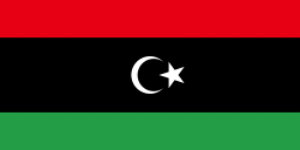
Violent conflict erupted on January 26th, ending the ceasefire that was established earlier this month. Military commander Khalifa Haftar’s forces occupied the town of Abu Grein, which was originally under the control of the UN-recognised Government of National Accord (GNA). At least three people were killed and more than two dozen were wounded.
Government forces are preventing Haftar from moving forward; they are inching towards regaining the areas that are currently under the control of Haftar’s army.

On Monday, Lebanon’s parliament passed its 2020 budget, upsetting both protesters and opposition leaders. “The proposed budget in its current form is completely detached from reality,” Nafez Zouk, an economist at Oxford Economics, told Al Jazeera. Lebanon is currently experiencing one of its worst financial crises; its currency is weakening, its business is declining, and banks are having to come up with limitations. The country owes a $1.2 billion Eurobond payment this March, only adding to its already gratuitous debt. The new budget claims that the Lebanese economy is growing and holds steady inflation rates. This disconnect between the country’s new government and the reality Lebanese citizens are facing is one of the chief complaints of protesters.

Bolivia’s interim President Jeanine Áñez has announced that she is running for President. Bolivians will head to the polls in May to elect a new government, as the results of the last election in October resulted in weeks of protests. In that election, President Evo Morales won and was going to serve for a fourth consecutive term, but after reports of corruption surfaced, violence broke out and Morales was forced to resign. Áñez has been in charge ever since he resigned in 2019.
Áñez’s decision has sparked controversy throughout Bolivia. The former conservative senator had previously stated that she was not going to run for office, promising to stay in power only until a new President was elected. On Monday, she asked all of her ministers to resign just hours after her Communication Minister stepped down in response to her decision to run.

General Mohamed Hamdan Dagalo, the deputy chief of Sudan’s Sovereign Council, and Malik Agar, the head of one of the two factions of Sudan People’s Liberation Movement-North (SPLM-N), have signed a peace agreement. The leader of the second fraction, SPLM-N Abdelaziz al-Hilu, has said nothing. This deal is supposed to bring an end to the war that has claimed the lives of thousands.
Sudanese families have organized a demonstration in front of the United Arab Emirates Embassy to protest against an Emirati company. The company is accused of sending recruits to fight in Yemen and Libya instead of hiring them for security posts in the UAE, as was described in their contracts. The company has denied all allegations.
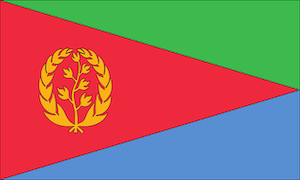
Leaders from Eritrea, Somalia, and Ethiopia recently met to discuss “revamping economies for the respective nations.” These Horn of Africa nations have been plagued with conflict and tense relations for a long time, but in recent years they have shown signs of increased cooperation. Ethiopian Prime Minister Abiy Ahmed won the Nobel Peace Prize last year for brokering peace with Eritrea, but he still faces backlash over his internal human rights record.
In their trilateral talks, the three nations agreed to join forces against terrorism, especially in Somalia where the al-Shabaab group still wields a considerable amount of power. Other topics that were discussed include cracking down on human trafficking, modernizing infrastructure, and mobilizing natural resources. The achievement of these goals will have a lasting impact on the region, as both Somalia and Ethiopia have major elections in 2020.

Pro-democracy legislators, activists, and a medical union have called for closing the border, but Chief Executive Carrie Lam dismissed the idea, deeming it impractical. Despite her comments, Hong Kong has announced its plans to close its borders in response to the spreading of the virus.
Tensions caused by the spread of the virus resulted in a group of protesters setting the lobby of a newly constructed residential building on fire on January 25th. The building was supposed to serve as a quarantine facility. On January 27th, another group of protesters launched a Molotov cocktail into a general hospital. Approximately 20 people were evacuated, but no one was injured.

On Tuesday, the Iranian Parliament called for a debate regarding their withdrawal from the Non-Proliferation Treaty, the top international agreement regulating the spread of nuclear weapons that was signed in 1968. This move is believed to be a threat to the global community.
After the United States pulled out of the deal in 2018, its future has been tenuous. Nations of the European Union condemned Iran earlier this year for violating the terms of agreement. The next step would be reimposing UN sanctions, which would only further cripple the United States’ economy. Iranian Foreign Minister Mohammad Javad Zarif said that if the EU were to impose sanctions, they would in-turn pull out of the NPT.

Juan Guaido met with Canadian Prime Minister Justin Trudeau on Monday, breaking the travel bans Maduro has placed into effect. Guiado is looking to gain international support for the removal of Maduro from office. Canada has placed sanctions against Maduro and is one of six nations that have referred Maduro to the International Criminal Court.
In order to keep his power over the country, Maduro is seeking help from the free market. He has given the economy a “freer hand” in his desperation to keep the economy afloat as it suffers from sanctions placed by the United States. The Venezuelan economy has “contracted by 60% during Mr. Maduro’s tenure and is widely predicted to shrink another 10% this year.” However, business professionals are now saying that the economy may rebound because of new freedoms.
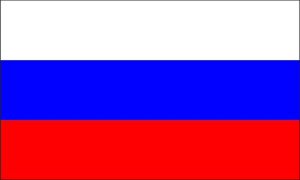
In an attempt to expand its influence in Africa, Russia has deployed nearly 200 mercenaries to Mozambique to fight against an Islamic State offshoot. Their long term goal is most likely to settle a permanent military base there, which would be Russia’s first base in Africa. In the past year, Russia has slowly been strengthening its influence on the region by facilitating arms sales and security trainings.
Russia also recently sent military forces to Libya in hopes of swinging the civil war in favor of the Libyan National Army. International interference in Africa has been controversial for quite a while, but there has been a massive increase in foreign fighters inhabiting the continent. Many world leaders are now trying to figure out what kind of presence is appropriate to maintain in Africa.

President Donald Trump unveiled a sweeping new plan for relations between Israel and Palestine. The two-state plan would create a disjointed Palestine state surrounded by Israel, who would be granted territory that it has wanted for years. Announcing the plan alongside Israeli Prime Minister Benjamin Netanyahu and no Palestinian representatives, Trump called the plan a “win-win.” In response, Palestinian President Mahmoud Abbas dismissed the plan, calling it a “conspiracy.” Thousands of protesters gathered in the Gaza Strip Tuesday, while Israel strengthened its military presence in the West Bank.